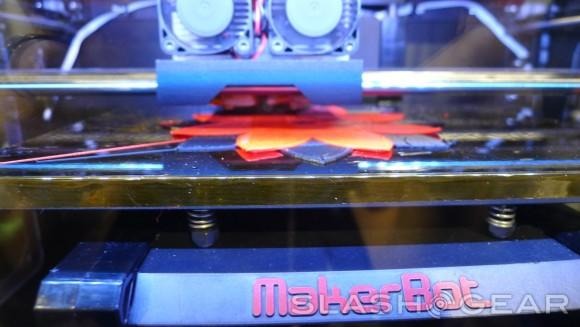3D Printers Shown To Expel Harmful Particles, Not Healthy For Home Use
3D printing is becoming all the rage now, but so was smoking back in the roaring 20s, both of which are harmful to you, according to a new study by the Illinois Institute of Technology. Researchers have discovered that 3D printers can emit harmful ultrafine particles into the air, and they compare that to the harm of smoking a cigarette indoors.
If you're wanting to get technical about it, the researchers revealed that emission rates of these particles were "high," and they ranged from 20 billion particles per minute for a 3D printer utilizing a lower temperature for melting the plastic, to around 200 billion particles per minute utilizing a higher temperature. The researchers say this is comparable to cooking on a gas or electric stove, burning scented candles, operating laser printers, and even lighting a cigarette.
Of course, there's also the factor of the toxicity of the materials used in 3D printing, such as the ABS plastic that most commercially-available 3D printers use. Obviously, it's not something that humans can digest, and we would be surprised if there wasn't harmful chemicals in the plastic.

Many of you may be asking how harmful is this on your body exactly, and the researchers say that the worst case scenario is obviously death, but asthma-like symptoms could form, with the potential for cardiac arrest and even a stroke, since the particles can get lodged in your lungs and brain, with the power to attract other harmful chemicals over time.
Of course, 3D printers are used all the time in factories and such, but they most-likely have good ventilation systems and the workers are probably wearing protective equipment. With 3D printers available for the home, there are most likely tons of users who aren't aware of the emissions and may be setting themselves up for long-term trouble.
VIA: Phys.Org
